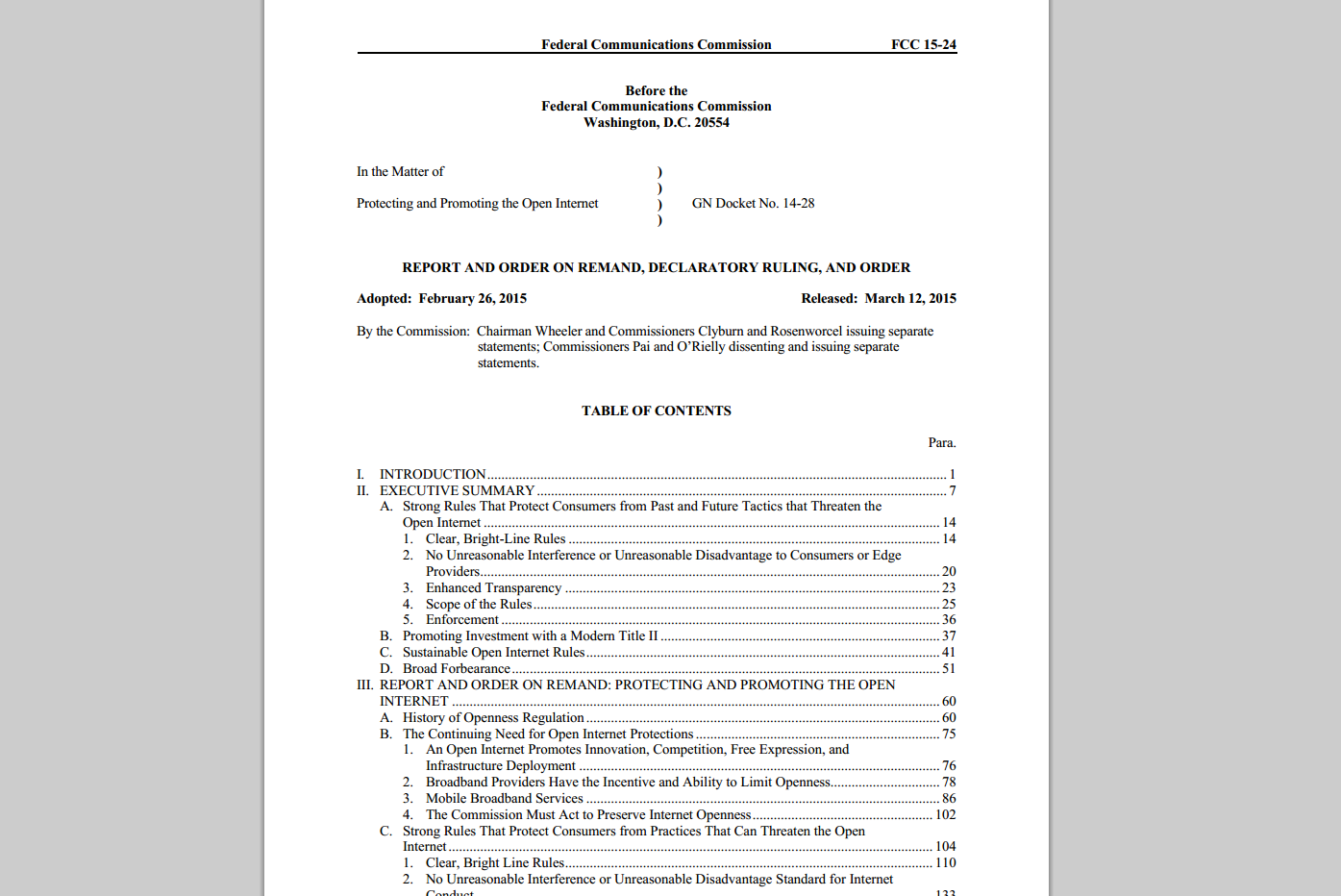
FCC Chairman Tom Wheeler stated: “This is a huge victory for Internet consumers and innovators! Starting Friday, there will be a referee on the field to keep the Internet fast, fair and open. Blocking, throttling, pay-for-priority fast lanes and other efforts to come between consumers and the Internet are now things of the past. The rules also give broadband providers the certainty and economic incentive to build fast and competitive broadband networks.”
CTIA's President and CEO Meredith Attwell Baker stated: "While the stay decision is disappointing and a loss for consumers, securing a judicial stay is always a challenge given the extremely high standards. The case is just beginning and the stakes are high – the U.S. is the world's leader in the deployment and adoption of wireless broadband, due in large measure to decades of light-touch regulation. The wireless industry seeks to restore that approach so consumers can benefit from competition and innovation, rather than suffer the harmful consequences of the FCC's overreach that would imperil new services and inhibit investment. As we said from day one, CTIA and its member companies support an open Internet. We look forward to presenting our full case to the court."
http://www.fcc.gov
http://www.ctia.org/
- No Blocking: broadband providers may not block access to legal content, applications, services, or non-harmful devices.
- No Throttling: broadband providers may not impair or degrade lawful Internet traffic on the basis of content, applications, services, or non-harmful devices.
- No Paid Prioritization: broadband providers may not favor some lawful Internet traffic over other lawful traffic in exchange for consideration of any kind—in other words, no “fast lanes.” This rule also bans ISPs from prioritizing content and services of their affiliates. It also prohibits practices that target specific applications or classes of applications.












